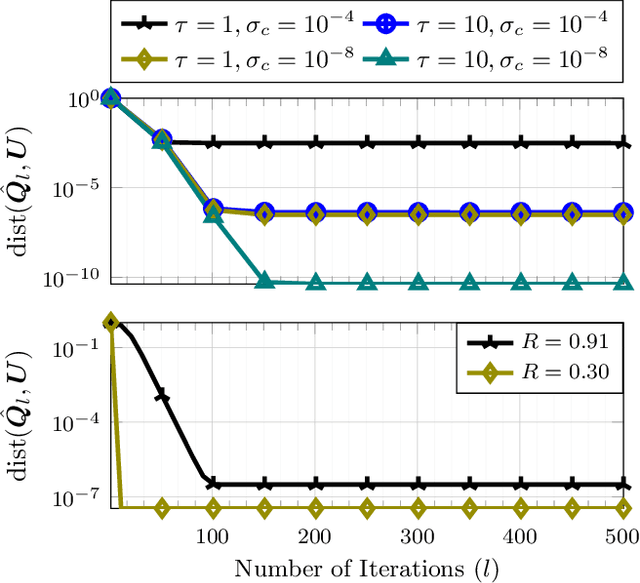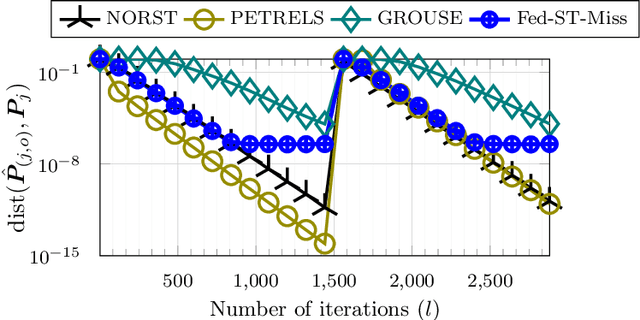Federated Over-the-Air Subspace Learning from Incomplete Data
Paper and Code
Feb 28, 2020


Federated learning refers to a distributed learning scenario in which users/nodes keep their data private but only share intermediate locally computed iterates with the master node. The master, in turn, shares a global aggregate of these iterates with all the nodes at each iteration. In this work, we consider a wireless federated learning scenario where the nodes communicate to and from the master node via a wireless channel. Current and upcoming technologies such as 5G (and beyond) will operate mostly in a non-orthogonal multiple access (NOMA) mode where transmissions from the users occupy the same bandwidth and interfere at the access point. These technologies naturally lend themselves to an "over-the-air" superposition whereby information received from the user nodes can be directly summed at the master node. However, over-the-air aggregation also means that the channel noise can corrupt the algorithm iterates at the time of aggregation at the master. This iteration noise introduces a novel set of challenges that have not been previously studied in the literature. It needs to be treated differently from the well-studied setting of noise or corruption in the dataset itself. In this work, we first study the subspace learning problem in a federated over-the-air setting. Subspace learning involves computing the subspace spanned by the top $r$ singular vectors of a given matrix. We develop a federated over-the-air version of the power method (FedPM) and show that its iterates converge as long as (i) the channel noise is very small compared to the $r$-th singular value of the matrix; and (ii) the ratio between its $(r+1)$-th and $r$-th singular value is smaller than a constant less than one. The second important contribution of this work is to show how over-the-air FedPM can be used to obtain a provably accurate federated solution for subspace tracking in the presence of missing data.
 Add to Chrome
Add to Chrome Add to Firefox
Add to Firefox Add to Edge
Add to Edge